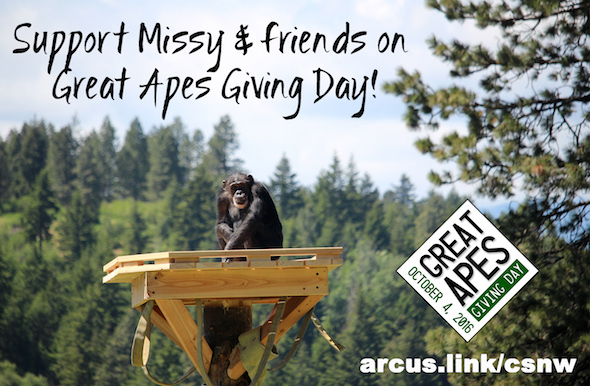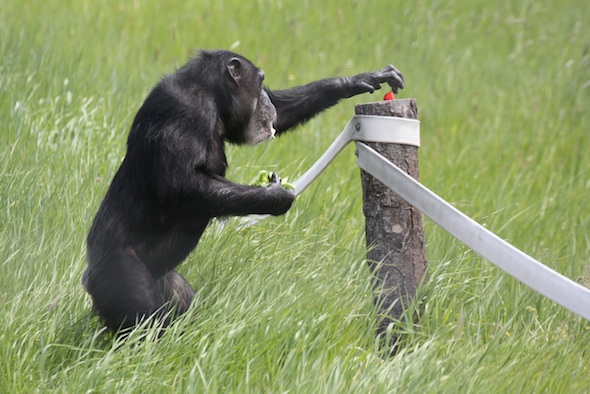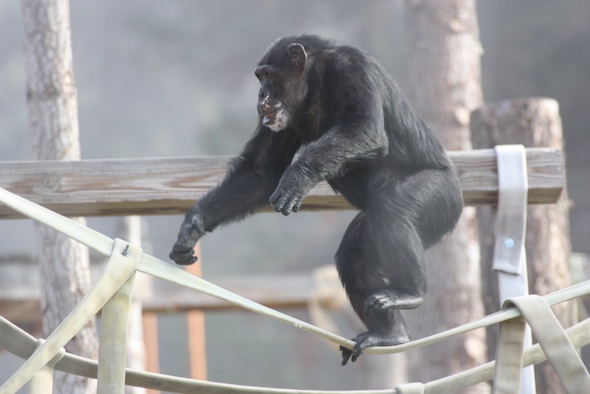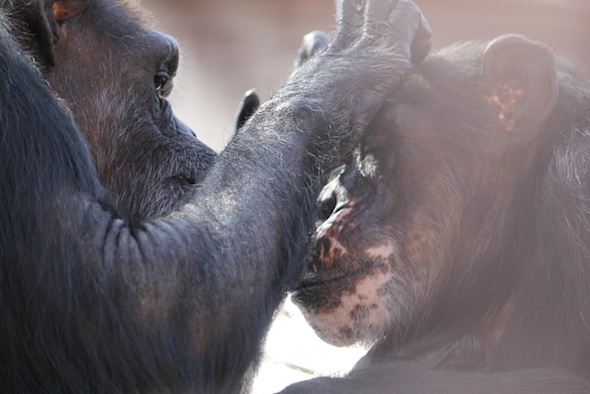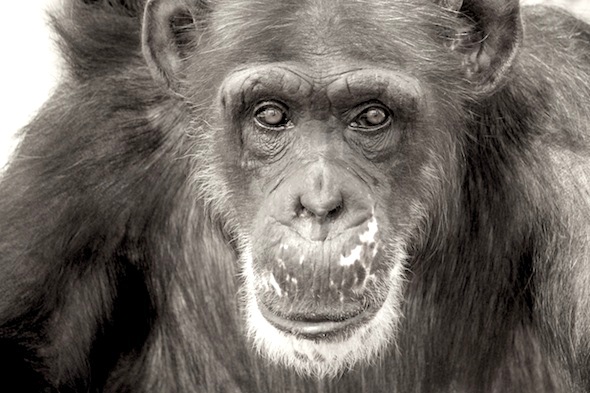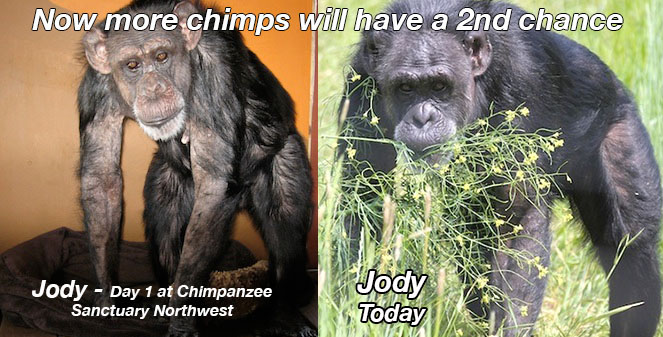This year for Great Apes Giving Day, I decided to highlight Missy’s story. If you are new to Chimpanzee Sanctuary Northwest or haven’t been following every single blog post, you may have missed the story of how Missy almost didn’t make it to her sanctuary home. Take a minute to read this story on our Great Apes Giving Day page here.
There’s another story that we don’t tell very often.
The Cle Elum Seven should have been the Cle Elum Eight. There was an eighth chimpanzee living at Buckshire with Missy, Burrito, Negra, Jody, Annie, Foxie, and Jamie who died two years before the Cle Elum Seven came to Chimpanzee Sanctuary Northwest. He was a male chimpanzee and we believe his name was Ceaser.
I never met him, but I think about him, and what he represents, all of the time.
It is such an amazing time in history right now with the end of biomedical testing on chimpanzees in the United States. And it’s a frustrating time because there are hundreds of chimpanzees who are waiting for their opportunity to live out the rest of their lives in a sanctuary home where the only mission is to provide them with the best care possible.
And I know there will be chimpanzees like Ceaser who won’t have this chance because they will die before they are released from their laboratory life.
It’s a fact that not all laboratories are like Buckshire, where the Cle Elum Seven lived. Most modern laboratories holding chimpanzees have some sort of outdoor space, even if it’s a small concrete fenced in area, and most chimpanzees living in laboratories now live with other chimpanzees rather than in single cages.
I would guess that the majority of people who are directly caring for chimpanzees in laboratories really care for, and even love, the chimps. This may seem strange to those who have never met someone who works in a laboratory as a caregiver, but I have met many people who have held those positions in their past or still do now. Sometimes they didn’t really know what they were getting into, and they are awakened to the injustices of using chimpanzees in biomedical testing after they came to know the chimps in labs first-hand. Often they stay in those positions because they want to make a difference in the day-to-day lives of those under their care.
Philosophically, though, laboratories and accredited sanctuaries are worlds apart. How you view a person or an animal affects how they are cared for. For accredited sanctuaries, the one and only aim is to provide the chimpanzees with a good home full of choices and social interactions and the space to figure out who they are. For laboratories, even if they are not actively using the chimpanzees in testing, the chimps are valued and viewed in terms of their contribution (for which they did not give their consent) to humans and their research questions.
This is a fundamental difference; and it’s the reason why it pains me to think about the chimpanzees, like Ceaser, who will die in laboratories even though the research has ended.
And then I think about Missy, who almost didn’t have the last eight years of her life at Chimpanzee Sanctuary Northwest.
Every day is about making sure that the chimpanzees in our care fully experience a life that’s all about them. It’s our moral obligation to try to give back to them at least some of what we, as a society, have taken. And we want to be able to do this for other chimpanzees coming out of laboratories.
This is why fundraising days like Great Apes Giving Day mean so much to us, and to other sanctuaries and rescue centers.
Please consider making a donation to Chimpanzee Sanctuary Northwest, learn about all of the organizations participating in this global day of giving for great apes, and watch this Tuesday (October 4th) when the competition for the prize money heats up.
In the end, the chimpanzees and other great apes that you give your donation towards are the big winners.
